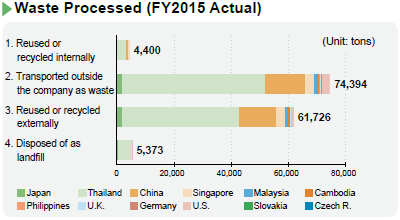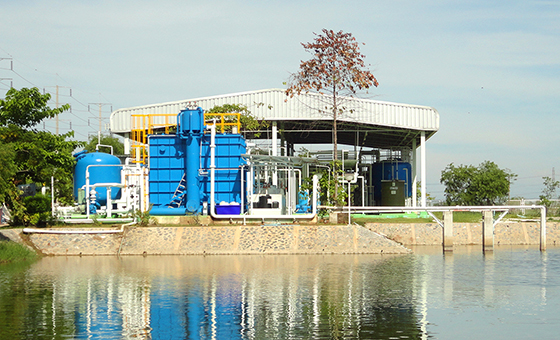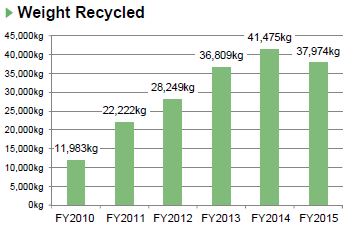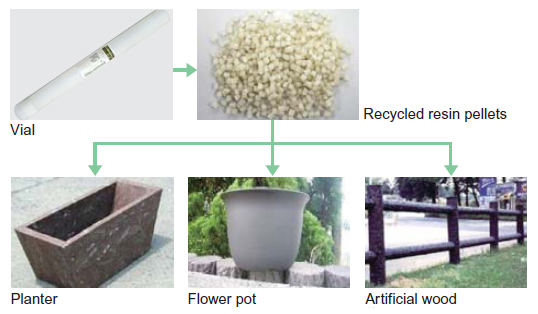Initiatives for Effective Use of Resources Back Number (2016)
Back to Latest Initiatives for Effective Use of Resources
Basic Approach
The Minebea Group recognizes that there are limits to the availability of resources used in its products, which include metals, plastics, and other raw materials, along with oil, natural gas, and other energy sources. Additionally, with regard to rare earth elements indispensable to the manufacture of electronics, since the number of countries producing and exporting the materials is limited, they are more susceptible to export restrictions.
We believe that the effective use of resources is critical to the continuation of our business activities, and to that end we are taking various management measures.
Results of FY2015 Initiatives
 In FY2015, principal raw materials used by Minebea Group included 87,426 tons of steel and 12,250 tons of resin, and the total amount of materials used increased about 3% compared with FY2014.
In FY2015, principal raw materials used by Minebea Group included 87,426 tons of steel and 12,250 tons of resin, and the total amount of materials used increased about 3% compared with FY2014.
The amount of landfill waste generated by the Group's operations in FY2015 totaled 5,373 tons, an increase of 55 tons compared to FY2014. However, in terms of basic unit of production, the amount of landfill waste generated declined by 17% in FY2015 compared with FY2014.
At our mass production plants in Thailand and China, we are recycling water inside the plants to the greatest extent possible and prevent external emissions through our "Plant Wastewater Zero System." Water emissions from Group plants in FY2015 totaled 960,000 m3, an increase of 67,000 m3 compared with FY2014.

Initiatives at Business Sites
Effective Use of Rain and River Water (Thailand)

Bang Pa-in Plant's rainwater reservoir and rainwater reuse facility
NMB-Minebea Thai's Bang Pa-in Plant collects rainwater in a reservoir on the plant grounds and purifies it at rainwater reuse facilities for reuse as industrial water, thereby reducing the amount of tap water used.
In addition to this system, one of the Thai plants took further steps in FY2012 to substantially reduce tap water consumption by drawing water from the nearby Chiang Rak Noi Canal and purifying it to use as an alternative to tap water. With the start of this system, the plant has reduced both its tap water consumption and its water related costs.
Conversion of Raw Food Waste into Biogas (Thailand)
NMB-Minebea Thai is taking part in a project by the Thai Ministry of Energy to promote the recycling of raw food waste into biogas energy. Both the Bang Pa-in and the Lop Buri plants have installed biogas generation systems on site. The generated biogas, which boasts a low environmental footprint, is used as an alternative to LP gas for cooking meals in the cafeterias.
Recycling of Vials and Other Materials (domestic logistics warehouses)

Since FY2010, the Minebea Group has sold as recyclable materials the polyethylene product containers (vials), stretch films, and polypropylene bands used in product deliveries to customers.
In FY2015, about 38 tons of vials, stretch films, and polypropylene bands were reprocessed into resin pellets and then recycled into planters and flower pots, as well as imitation trees.

Future Issues and Goals
For FY2016, the Group’s goal is to reduce the amount of waste generated by 1% per basic unit of production compared with FY2015.














